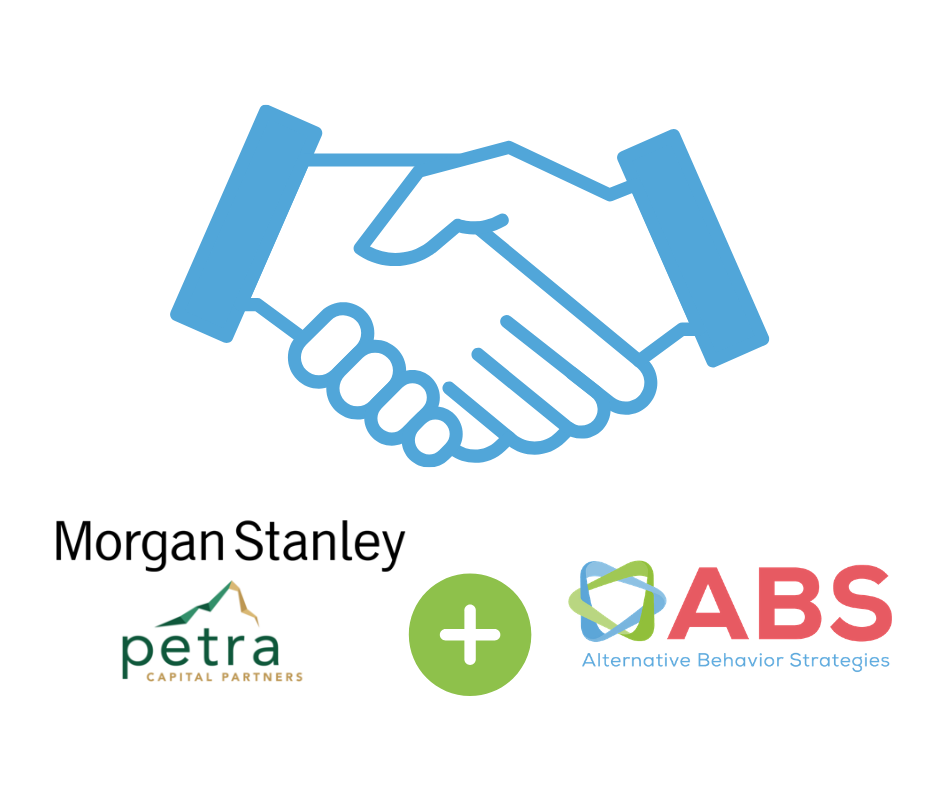Autism Acceptance Month: Learning, Advocating & Being a Mother
Kiesha Upshaw, a Marketing Coordinator at ABS Kids, is the mother of two (now adult) children on the spectrum, and has spent much of her life learning, advocating, and supporting children with autism and their families.
Helping people with autism is something that I have been passionate about for over 20 years. As a mother of two boys on the spectrum, as an RBT working with families that have children with autism, and now as a Marketing Coordinator at ABS Kids, much of my adult life has been dedicated to helping people with autism spectrum disorder (ASD).
How does that happen? It is a story with a lot of ups and downs, but one that is worth sharing.
My story begins as a young mother living in Texas in 1994. My oldest son was very restless as a newborn. He was easily startled by most noises and had extreme colic. He was not meeting developmental milestones and he wasn’t sleeping or eating well.
At 2 years old, we decided to have him evaluated by a child psychologist. At this time, ASD was not widely recognized or accepted by the community – or insurance companies.
In 1997, my son was diagnosed with pervasive developmental disorder (PDD), now known as ASD. He had difficulty making friends, was always fidgeting, and learning was particularly challenging without a lot of repetition due to short-term memory challenges. Our pediatrician referred us to various therapists for PT, OT, and speech to address many of our challenges.
Accepting & overcoming challenges
As a mother, I was concerned that my son would feel like we were always focusing on what was wrong with him. I came to realize that my perception and play therapy calmed this concern quite a bit.
In 1999, my husband’s career took us to Connecticut where we found services to support our son. Applied behavior analysis (ABA) therapy was growing in popularity in the 90s but wasn’t covered by many insurance companies. We continued with an intense therapy plan until the age of 6 when my son entered kindergarten.
In kindergarten, he had a difficult time getting along with others and acted out his frustrations through attention-seeking behaviors. He couldn’t sit still in class and learning required extreme amounts of repetition. Math and reading were near impossible with his working memory challenges. Handwriting took an extremely long time due to a condition known as motor dysgraphia.
Due to the motor dysgraphia, we started using voice recognition software until he learned to type. It was determined that my son was only able to produce a third of what he was capable of when he was required to write as opposed to speaking or typing. My son was given the accommodation of using a laptop for lengthy written work to help with this challenge. This was a game-changer when he started typing fluidly in second grade!
A second diagnosis & big move
In 2000, my second son was born and had many of the same difficulties and diagnoses. When he was 3 years old, my husband’s career took us to London, where we had plans to utilize the private healthcare system to obtain services based on an evaluation done by an educational consultant. The consultant told us we would need new assessments done in the UK, and that couldn’t be done until we had residency in the country. She felt that we should be able to continue with services in the private health care system.
Upon arriving in London and completing the boys’ assessments, we were quickly informed that the type and frequency of therapy they needed was not going to be attainable for years in some cases. This was because of long waiting lists and a limited number of medical specialists in the system. We continued to explore options and utilize the available services with less frequency. After much effort, 10 months later, we decided to return to the United States to obtain the services both boys needed more frequently.
Back in Connecticut, we re-established services and began an upward path to helping the boys learn to advocate for themselves, using the tools we had to make life easier. Every year we went through a detailed process of obtaining accommodations in schools, IEP meetings, and various therapies to strengthen skills.
We found that private schools specializing in learning challenges were extremely beneficial for middle and high school. The private schools taught them how to advocate for themselves and how to best prepare for various tasks based on their individual learning style. The low student-to-teacher ratio was also helpful. For social skills purposes, we also enrolled the boys in martial arts, which was a great physical activity to help with motor coordination and discipline.
Both boys graduated from high school, and I can honestly say that they are both wonderful advocates for themselves.
What I’ve learned
In 2012, we moved back to Texas. My older son pursued a career in cyber security, which suits his strengths well, and my younger son is currently in college pursuing a degree in engineering. They still struggle at times, but they are thriving and happy.
As I’m writing this from a parent perspective, I also want to share that advocating for my children through this journey was extremely difficult but extremely rewarding. Here are a few ideas and suggestions I’d like to share:
- Take care of yourself! This is so important. It is so easy to put your own needs aside when advocating for your children. The stronger you are, the better they will be served. Also, accept help from others when possible. Every little bit counts! The more people that can love your children and support them, the better.
- Your child is stronger than you think! Give them the chance to try new things. I often found I was inclined to protect my child more because of his learning and physical challenges. Kids on the spectrum can be creative and often learn to adapt in ways you would never imagine.
- Don’t let your child’s diagnosis define you or them. Encourage them with plenty of verbal affirmations and opportunities to grow.
- Take things one step at a time. Put one foot in front of the other and just keep moving. Every step counts, and each day is a new beginning.
- Seek professional guidance. Don’t hesitate or feel defeated if you need professional guidance on any level. Ask your questions, do your research, and embrace any community support available. There is strength in numbers, so you don't have to be alone.
I learned so many things advocating for my children. In fact, I developed such a passion for advocating for those on the spectrum that when my children got much older, I decided to continue supporting the autism community through charity events and volunteering in the special needs community.
In 2019, my volunteering led me to becoming a Registered Behavior Technician (RBT). This was a challenging but rewarding part of my journey. All those years of advocating and researching the special education realm for my own children gave me the knowledge and perspective to really know what these children and their families were going through.
During my certification process, I learned about the world of ABA therapy and was trained on various techniques that allowed me to help children on the spectrum learn life skills, how to navigate social interactions, how to communicate without words, and how to have fun just like every other kid!
I felt my time as an RBT gave me another level of insight and a realization that all the things I felt and went through as a parent raising my boys were normal. That’s right – normal. You just need to show up and be willing to love and learn.
In 2023, I decided that I wanted to learn more about supporting the autism community from an administrative standpoint. I have a lot of experience in the industry and a good marketing skillset. I started applying for administrative positions in the industry and was offered an administrative position here, at ABS Kids.
I currently work in the marketing department and the new skills and insight I have obtained in this role have been amazing. This position brings me full circle in my desire to help those on the spectrum in as many ways as possible.
As a Marketing Coordinator, I get to help support those people on the front line from behind the scenes. I’ve been in the field, and often this brings more value and interest to my current position. I get to be a part of the foundation of a company that helps those in the autism community thrive and grow. I don’t have enough words to fully explain how amazing this journey has been for me thus far.
I hope my story has inspired you, given you hope, and most of all helped you realize that you’re not alone.

